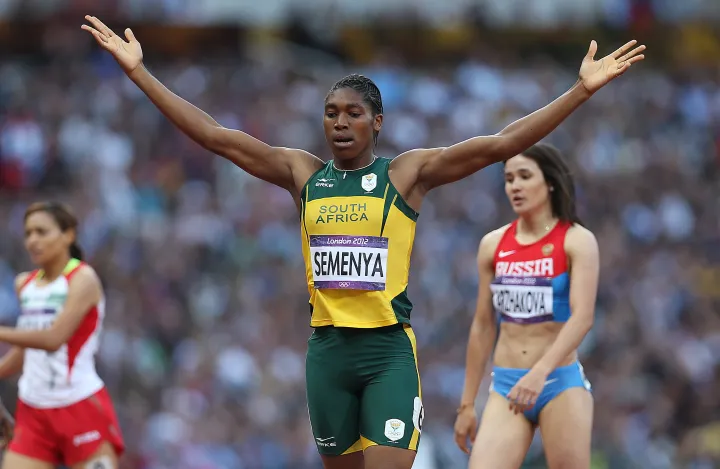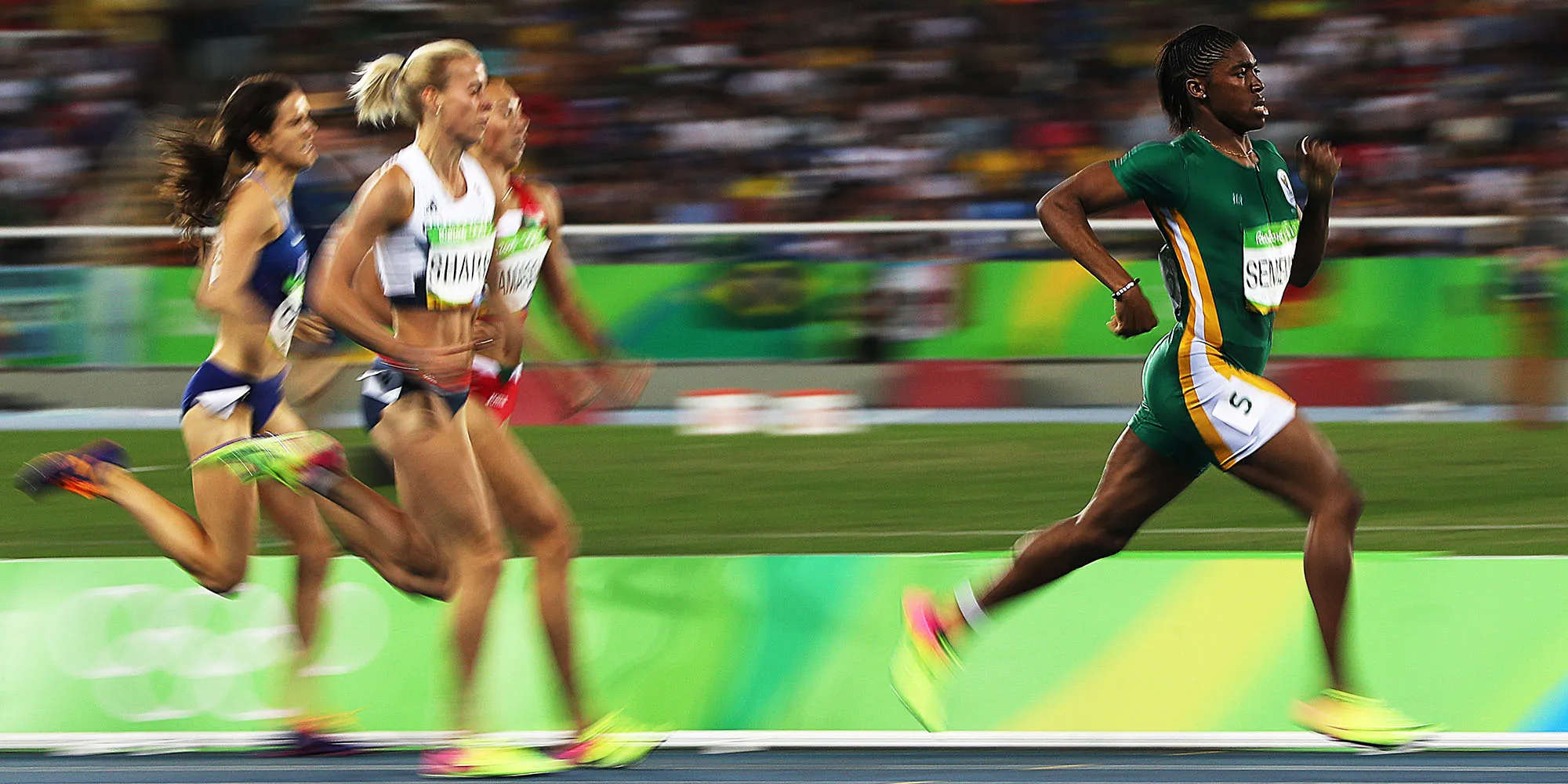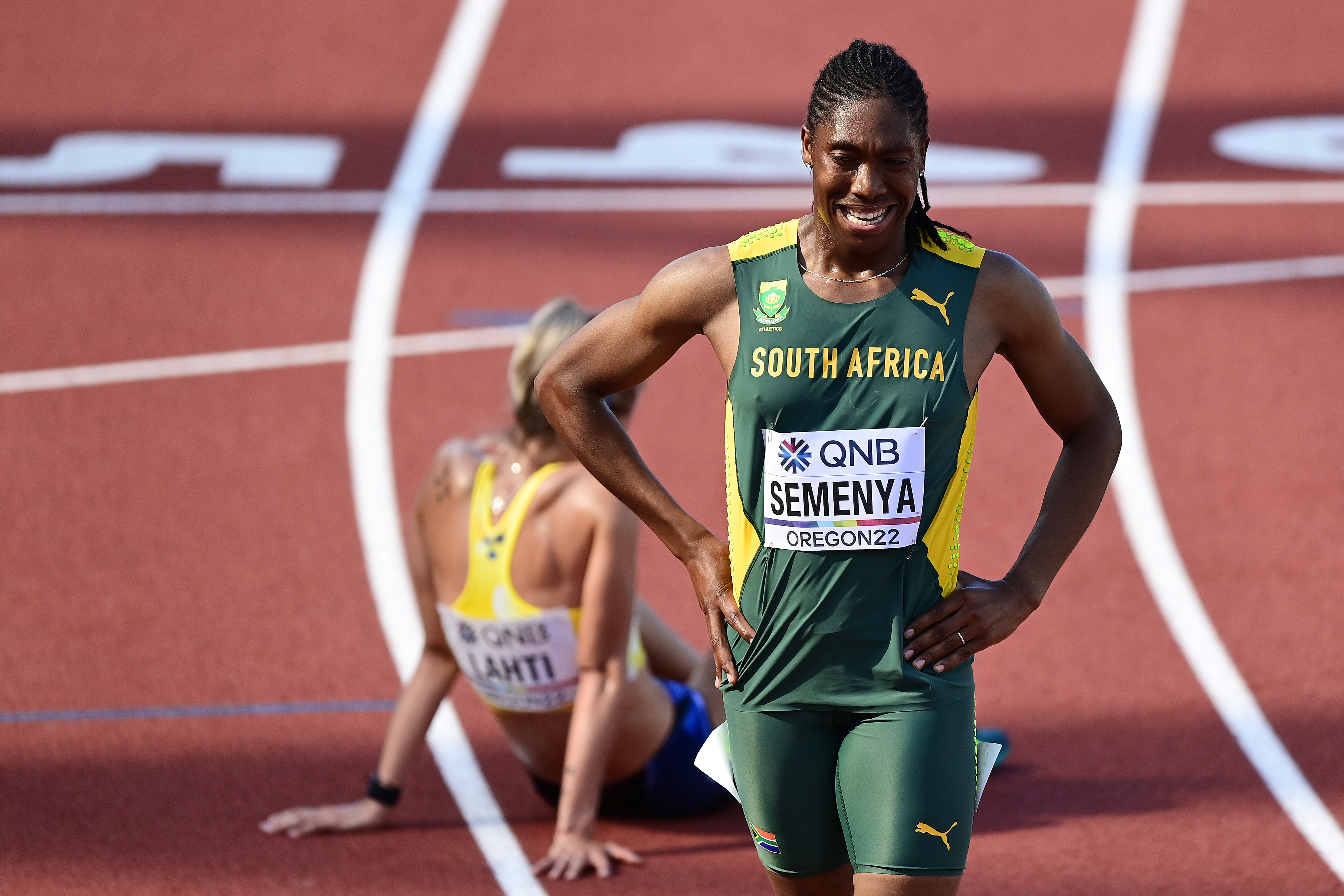BIOLOGICAL VERSUS RIGHTS OP-ED
‘Victory’ for Caster Semenya might have serious implications for the category of women’s sport

The European Court for Human Rights ruled in favour of Olympic runner Caster Semenya on Tuesday, saying courts in Switzerland should give her a new chance to fight a requirement that female athletes with high natural testosterone take drugs to lower it.
In 2019, Caster Semenya lost a case at the Court of Arbitration for Sport (CAS), and then went along the process of appeals, all of which she had lost until now.
In the ruling, the court says “that the applicant had not been afforded sufficient institutional and procedural safeguards in Switzerland to allow her to have her complaints examined effectively, especially since her complaints concerned substantiated and credible claims of discrimination as a result of her increased testosterone (T) level caused by differences of sex development [DSD].”
To clarify, DSDs are conditions that affect how we develop typical male or female characteristics. Individuals with the DSDs relevant to sport typically have XY chromosomes and develop functioning testes, which produce testosterone.
For reasons related to various enzymes and subsequent biological processes, they can’t use testosterone in the typical way, which leads to the development of atypical or female-typical genitalia.
At birth, these individuals are often identified as girls, despite having male testes and levels of testosterone, which is what leads to later-in-life challenges for sport’s authorities.
Physiological issues versus legal rights
In 2019, the focus was very much on the physiological issues of the case, and whether the DSD policy that required Semenya and others to reduce T in order to compete was justifiable and necessary.
Once that case was concluded, we (all those involved in CAS first time around) were told that in future, any legal proceedings would be focused more on the process and legal jurisdictions than they would be on the biology.
No scientific or physiological expertise would be necessary. In fact, entirely new teams of lawyers came on at that point to navigate what was a court system totally different from CAS (which is an arbitration process).
Therefore, I’m not 100% sure what this ECHR decision actually means in practical terms. It certainly is not a judgment that compels World Athletics to set aside its DSD policy and allow those athletes to compete, as has been suggested by a few overzealous sports officials
Instead, the decision is focused on the CAS process, and it may yet be the catalyst to revisit the policy in another challenge, but it is not, in and of itself, a ruling on whether the World Athletics policy is sound.
In other words, the ruling does not speak specifically about the World Athletics policy, but rather about the process by which Semenya could (not, as they rule) challenge that policy.

Caster Semenya of South Africa competes in the Women’s 800m semifinals on Day 13 of the Rio 2016 Olympic Games at the Olympic Stadium on 18 August 2016 in Rio de Janeiro, Brazil. (Photo: Ian MacNicol / Getty Images)
The next steps may depend on what Semenya decides to do, and whether there is now an appetite to go back to the CAS to revisit and challenge the DSD policy once again.
Presumably, that will re-invite the physiology and scientific debate, with a huge dose of human rights behind it. That policy, meanwhile, has changed — it was updated in March this year along with World Athletics’ revision of its trans guidelines, so the new challenge would have some differences.
One notable change that was made is that the DSD policy is no longer limited to a narrow band of events from 400m to the mile, but encompasses every single event, shot put to marathon.
That strengthens the World Athletic position because trying to explain why male biological advantage would be relevant to some events only undermined the biological basis for the policy in the first instance.
It’s considerably stronger when the biological advantage is recognised in every single discipline. Plus, there’ve been a few more cases since 2019, outside of that event range, and there’s also more research on male vs female differences and the importance of testosterone. The biological position, at least, is stronger.
For their part, World Athletics released a statement that pretty much says the same thing — “it’s not us who were on trial, it was the Swiss court system, and we stand by our policy.”
Biological reality vs human rights in sport?
Viewing it dispassionately, my impression, which I’ll be the first to say is simplified, is that CAS made its decision with a heavy focus on the biological merits of the case.
World Athletics (WA) presented a very strong argument to CAS in 2019. That is, a person with a DSD undergoes normal male development and this creates performance advantages, which women’s sport is meant to exclude.
Therefore, it would be unfair to allow the athlete into women’s sport, and so it is “necessary, reasonable and proportionate” (as per their own words) to have their DSD policy.
On the other hand, the ECHR has decided to focus on the legal process and human rights elements of the case, without the same scrutiny on the biological arguments.
And to be clear, these are without doubt important to consider. The implementation of the DSD policy raised a lot of important questions about medical autonomy and ethics, coercion, the manner in which the athletes were identified and “consented” to surgery and medical treatment.
Some of it was legitimately awful and revealed questionable practices that World Athletics would have to sort out (and hopefully have thought of moving forward). Plus, the process by which an athlete goes to CAS is always up for scrutiny — it comes up regularly in doping cases too.
In these cases, you have one assessor focused on biology. The other prioritises the human rights claim.

Caster Semenya of Team South Africa reacts following the Women’s 5000m qualification on day six of the World Athletics Championships Oregon22 at Hayward Field on July 20, 2022 in Eugene, Oregon. (Photo: Hannah Peters/Getty Images for World Athletics)
This approach cannot possibly “solve” the issue because these are irreconcilable arguments — biological reality stands in opposition to the notion of gender identity and category eligibility in sporting competitions. That’s why two courts arrive at different decisions — they are making a choice between these two imperatives.
Whether this choice is correct depends on perspective. I would submit that women’s sport exists for biological reasons — it excludes a biological advantage that creates huge performance implications.
Caster Semenya is a beneficiary of male biological development — her testosterone levels are high, because it’s normal for males, with testes, to have very high testosterone levels.
It’s not an aberration or an unusual quirk of physiology, it’s pretty basic, a straight line drawn from chromosomes to testes to hormone levels.
The debate can be reduced to a choice between that physiology, and the rights of people to identify (or be identified, in the more complex case of DSDs as they wish, and then claim access to women’s sport that is consistent with their gender, rather than their sex.
And if the choice is made that identity should trump biology, then it leads directly to the erosion of the boundaries that give women’s sport its meaning, and also leads us into a conversation about trans women that should not be conflated with DSDs, but will undoubtedly creep in here.
Or is it possible to recognise and treat DSDs as distinct cases from males wishing to identify as and then compete against women? Biologically, no, the basis for advantage is the same.
Yet the updated WA policy already does, to some extent, appear to acknowledge that the DSD cases are ‘special’, because they have created a policy for trans women that is subtly different from that for DSD athletes.
WA now completely excludes anyone born male from participation in women’s sport. No entry even with T suppression. This is because of evidence showing that T reduction does not remove male biology that creates performance advantages.
Yet the new DSD policy makes an allowance for those athletes to compete after T suppression. Now, there is no biological basis to think that males who suppress T should be any different to a DSD athlete who suppresses T. Biologically, WA should in fact have the same policy for both.
It appears to be a “concession” that allows DSD athletes to participate with lower T. This may be an acknowledgement that there are unique human rights perspectives, and they’re trying to accommodate those with a policy that is as inclusive as possible without being unfair.
This approach may, in the medium to long term, be challenged once again. If that happens, it will be really interesting to see how WA defends the biological foundations of its policies.
In one sense, they’re stronger now than in 2019, because they have more cases to point to, plus evidence that testosterone suppression doesn’t work to remove male advantage anyway, and so even allowing DSD athletes to compete can be argued to be inclusionary.
Conversely, does sport wish to stand up to Human Rights courts that rule that they are discriminating unfairly?
If they don’t, this victory for one athlete could come at a significant cost for women’s sport. DM
This is an edited version of a story by Ross Tucker that appeared at patreon.com
Professor Ross Tucker is a sports scientist.



















Women like Caster Semenya should be accepted as they are, natural women. It stands in stark contrast to the bending over backwards to accommodate previously male athletes: if you decide to change your gender then you make various changes and this includes not competing against women born as women. It’s a choice whereas Caster doesn’t have a choice. A convicted rapist in Scotlander became a woman recently, so it is clearly a more complex decision than the superficial arguments reveal.
Thank you for a good and dispassionate summary of the Caster case, without the near hysterical ad hominem attacks that seem to be blasted out by gender activists, completely ignoring any and all biological arguments that don’t fit into their world views.
So if DSD’s have a biological advantage, what about athletes with (way) higher than average VO2 max, what about swimmers with (way) bigger than average hands and feet? Should they too then not be allowed to compete, unless they take drugs to reduce their VO2 max / trim their hands and feet?
Ridiculous argument! If they’re born like that (as was Caster) then fair game. I fully agree that those born as male who then transition, should be excluded.
The argument that athletes with biological advantages such as larger hands and feet being similar to Casters DSD is not valid in this case, as there are no special sports categories for people with specific limbs, but there are categories for men and women. There is of course a reason for this, as there is no doubt at all that biologically males outperform females in just about all physical disciplines (due to increase muscles mass etc etc). Caster has internal testes and with it the biological advantages of growing up with testosterone. A better example would be whether you think all boxers should fight in the same weight category (which they for obvious reasons don’t). By your logic, we may as well simply get rid of all categories, and all athletes, regardless of biological sex, compete against each other. I don’t think we would see many women in the top level sports.
Don’t get me wrong, I do have empathy for Caster, and it truly was horrendous the way CAS dealt with this topic, but that changes nothing about the fact that it is unfair to biological female athletes in their respective category. For a balanced view on this topic, please read the quillette article “a victory for female athletes everywhere” by Its long but written by Doriane Lambelet Coleman,a professional athlete and is well worth the read.